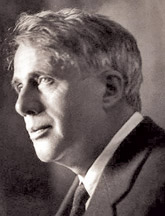|
The metaphorical habit:
‘We shall not cease from exploration’
 One of the many valuable things I learnt from MI Kuruvilla was that
there are two great modes of artistic expression, namely the
metaphorical and the ironical. Let us here consider the first. As we
know, a metaphor is a figure of speech by which something is described
as if it were a quite different thing. This enables the qualities of the
latter to be imaginatively attributed to the former, thereby heightening
our understanding of it in a way that would not have been possible with
a literal description. The impact made is usually emotional as well as
logical. A familiar example would be Yeats’ line, “In the foul
rag-and-bone shop of the heart.” One of the many valuable things I learnt from MI Kuruvilla was that
there are two great modes of artistic expression, namely the
metaphorical and the ironical. Let us here consider the first. As we
know, a metaphor is a figure of speech by which something is described
as if it were a quite different thing. This enables the qualities of the
latter to be imaginatively attributed to the former, thereby heightening
our understanding of it in a way that would not have been possible with
a literal description. The impact made is usually emotional as well as
logical. A familiar example would be Yeats’ line, “In the foul
rag-and-bone shop of the heart.”
As I now realise, Kuruvilla was not referring to metaphor as a mere
literary device but as an actual literary attitude or approach. By means
of it the poet’s capacity for experience is enriched by his ability to
perceive and communicate its relation to seemingly different realms of
experience. This facility for harmonizing experiences is very much a
part of the creative imagination, which we remember Coleridge to have
described as “the power (that) reveals itself in the balance or
reconciliation of opposite or discordant qualities; of sameness, with
difference; etc.”
|

William Shakespeare |
Evidently basing himself on this definition, Eliot explains how “when
a poet’s mind is perfectly equipped for its work, it is constantly
amalgamating disparate experience: the ordinary man’s experience is
chaotic, irregular, fragmentary.... (but)....in the mind of the poet
these experiences are always forming new wholes.” How does this work in
his practice of poetry? Let’s examine Shakespeare’s sonnet 73in the
first instance:
“That time of year thou mayst in me behold, When yellow leaves, or
none, or few do hang Upon those boughs which shake against the cold,
Bare ruined choirs, where late the sweet birds sang. In me thou seest
the twilight of such day, As after sunset fadeth in the west, Which by
and by black night doth take away, Death’s second self that seals up all
in rest. In me thou seest the glowing of such fire, That on the ashes of
his youth doth lie, As the death-bed, whereon it must expire, Consumed
with that which it was nourished by.
“This thou perceiv’st, which makes thy love more strong, To love that
well, which thou must leave ere long.”
The three consecutive quatrains which comprise the first dozen lines
develop three different but connected metaphors through which the poet
explores his ever-deepening sense of desolation. In the first, it is
seen to be equivalent to the time of year when winter is nigh and the
few remaining yellowed leaves are ready to drop off their trembling
boughs. Note how this harsh glimpse of natural decay provides a sharper
insight into how the poet feels about himself than any literal
description could have done.
This is further elaborated by the metaphor of the threadbare,
birdless boughs itself being developed into one of deserted choir-stalls
which once resounded with the tuneful voices of choristers.
This conveys the added pathos of the poet’s sense of the loss of his
creative powers.
|

William Shakespeare |
The urgency grows greater in the second quatrain as the poet now sees
his condition to correspond to the even more fleeting twilight of a
single day, when the sun has already set and the thick darkness of night
menaces with its premonition of extinction – “death’s second self” which
puts an end to daytime activity by enforcing an unwelcome rest. With the
third quatrain there comes an unexpected switch to yet another
metaphoric dimension, that of fire, with its further grave implications
for the apprehensive poet.
The fire is already dead, all that is visible is the glow of its
embers soon to be extinguished by the ashes of the very fuel that had
supported its blazing. Thus the sad irony that youth’s thoughtless
expenditure of energy is what brings about the eventual decline into old
age, making youth the future deathbed of life. It is the last twist of
the knife that the poetic imagination, operating in metaphoric mode,
imparts to the poet as he explores the extent of his sense of
desolation.
This sonnet obviously abounds with the “exploratory creativeness and
metaphorical concreteness” that Leavis has spoken of as being typical of
Shakespeare’s style. But even here we can see that metaphor is not only
a matter of poetic diction but of poetic thinking, the creative instinct
for understanding and rendering one experience in terms of others. In
fact, a poet can demonstrate this metaphorical habit of mind even
without resorting to figuratively rich language, even when his style is
essentially bare of metaphoric complexity, as in Frost’s ‘A Brook in the
City’:
“The farm house lingers, though averse to square With the new city
street it has to wear A number in. But what about the brook That held
the house as in an elbow-crook? I ask as one who knew the brook, its
strength, And impulse, having dipped a finger length And made it leap my
knuckle, having tossed A flower to try its currents where they
crossed......How else dispose of an immortal force No longer needed?
Staunch it at its source With cinder loads dumped down?
The brook was thrown Deep in a sewer dungeon under stone In fetid
darkness still to live and run - And all for nothing it had ever done
Except forget to go in fear perhaps. No one would know except for
ancient maps That such a brook ran water. But I wonder If from its being
kept forever under That thoughts may not have risen that so keep This
new-built city from both work and sleep.”
There is little or nothing metaphorical about the style of this
starkly powerful poem. But without our realising it, through the shock
of the intimation of the brook’s fate, its conversion to the living
death of an underground sewer, the entire poem becomes a metaphor of
man’s accountability for the brutal suppression of nature whereby he
satisfies his lust for expansion. As Frost himself puts it, “Every poem
is a new metaphor inside or it is nothing. And there is a sense in which
all poems are the same old metaphor always.” It is a theme that has
become increasingly common in poetry since the Industrial Revolution.
And it is one that is painfully familiar in our own experience, for
instance, of how the once-cherished “welas” that used to “hold as in an
elbow-crook” our rural suburbs have been buried under truckloads of
garbage and red earth to facilitate urban expansion.
Metaphor may, therefore, be regarded as the great mode of imaginative
exploration. We cannot do without it because, as it says at the end of
‘The Four Quartets’, “We shall not cease from exploration.” To further
resort to Eliot’s apt phraseology we shall always expect, on account of
the great poet’s zest for presenting the totality of his experience, to
be “moved by fancies that are curled around these (his metaphorical)
images and cling: The notion of some infinitely gentle, infinitely
suffering thing.” |



